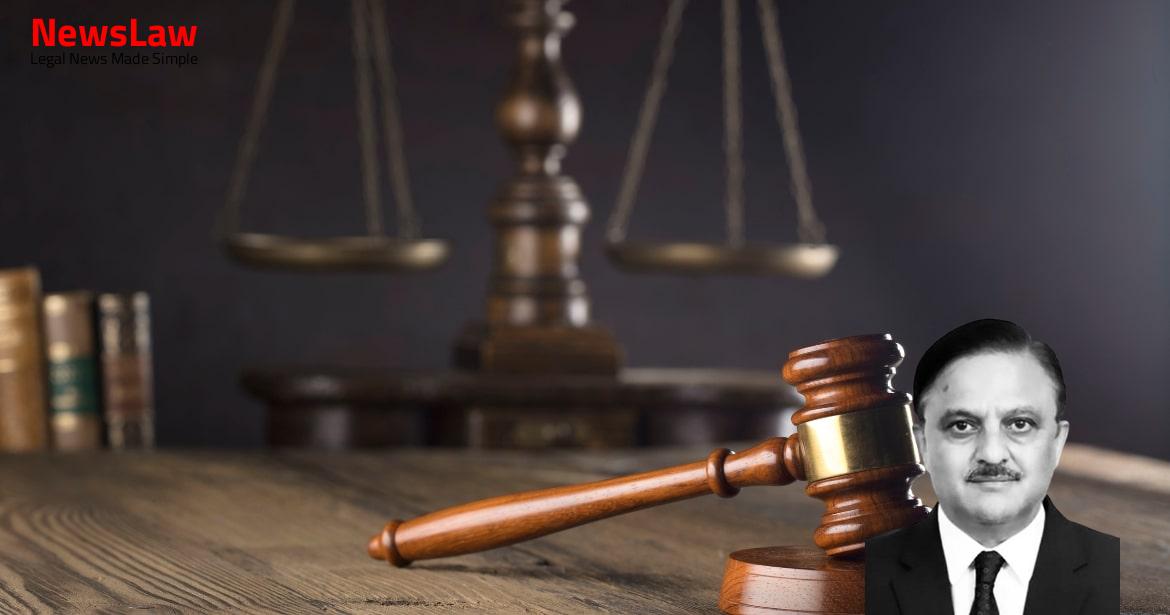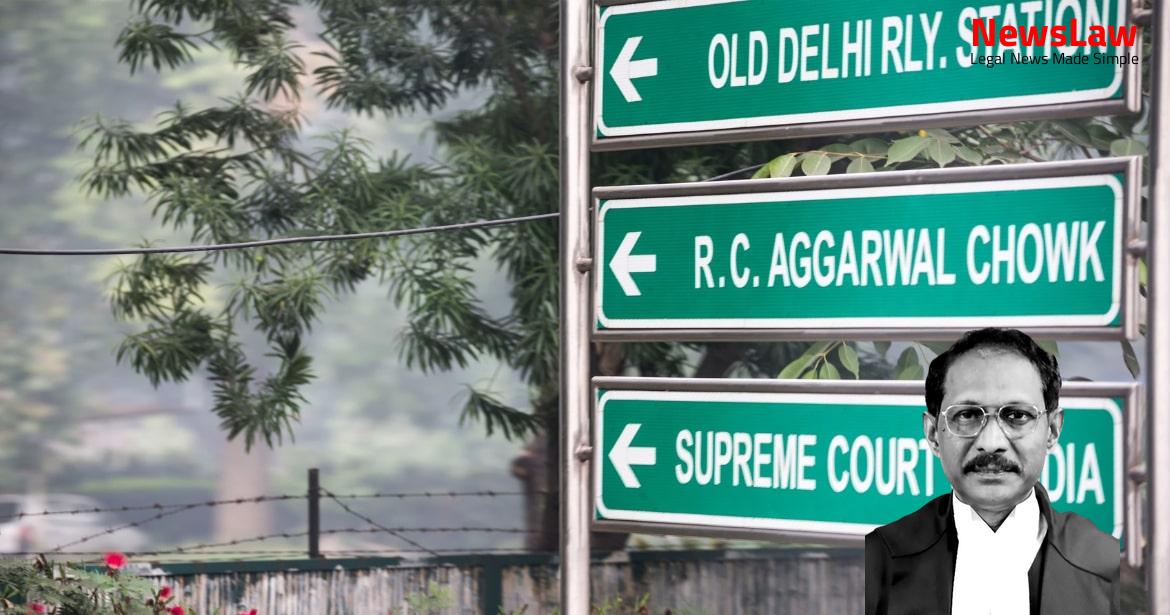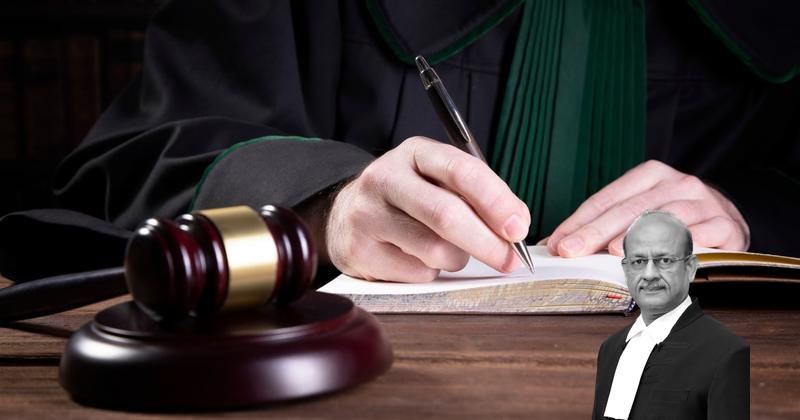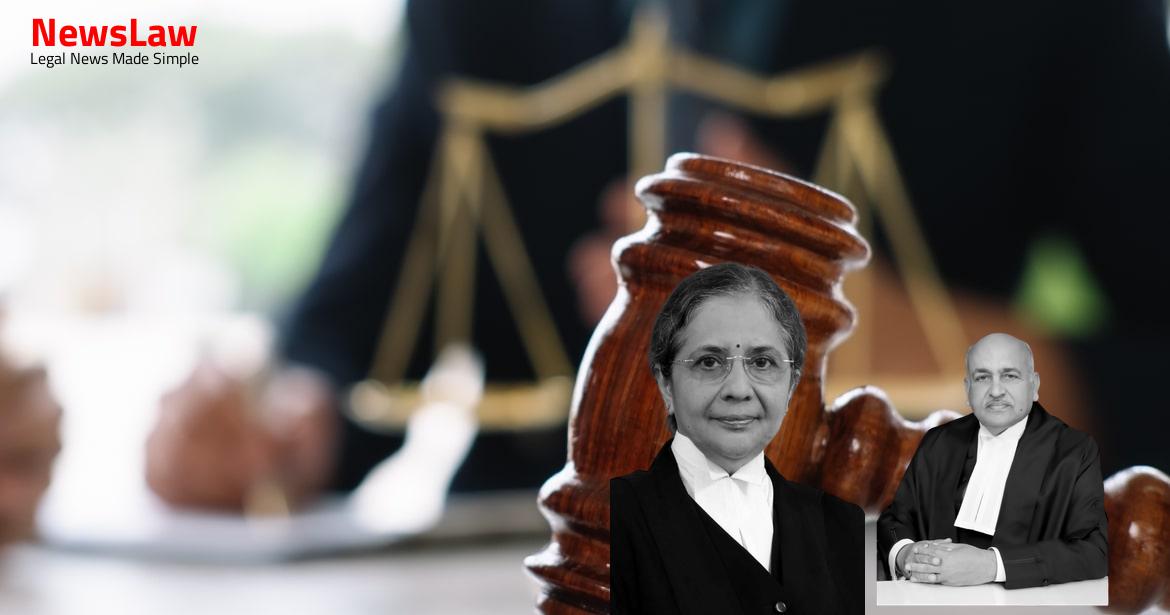A significant legal case concerning child custody has been decided by the Supreme Court of India, focusing on the well-being and best interests of the child. The case involves a petition seeking Habeas Corpus under Article 226, with the child’s paternal grandparents as the main parties. The Court’s decision highlights the paramount consideration of the child’s welfare, especially given her tender age of two years and seven months. Expert assistance and supervised access arrangements play a crucial role in this complex custody matter.
Facts
- The child’s mother passed away due to an unnatural death on 27 December 2022 by hanging.
- The maternal grandparents of the child, who were not parties before the High Court, are the 4th and 5th appellants.
- The 2nd to 5th respondents filed a petition seeking a writ of Habeas Corpus under Article 226 at the Madhya Pradesh High Court.
- A First Information Report was lodged against the 2nd and 4th respondents under various sections of the Indian Penal Code and Dowry Prohibition Act.
- The petition alleged that the 2nd and 3rd appellants took custody of the child without lawful authority.
- The father of the child, the 4th respondent, was arrested in connection with the case and granted bail later.
- As of the current date, the husband of the deceased mother has not applied for custody under the Guardians and Wards Act.
- The court granted leave and continued the stay in the matter of child custody.
- The Division Bench of the High Court of Madhya Pradesh at Indore allowed the writ petition filed by RLC.
- The writ petition was related to a land dispute between RLC and the State Government.
- The Division Bench considered the evidence presented and ruled in favor of RLC.
- The judgment was issued on 23 June 2023.
Also Read: Landmark Supreme Court Judgement in a Corporate Immunity Case
Issue
- The High Court’s decision to disturb the custody of the child, aged one year and five months at the time of the judgment, is being questioned.
- The central issue is whether this custody change was justified.
- This raises concerns about the child’s well-being and the legal justification for such a decision.
Arguments
- Learned senior counsel argued that the case of Gautam Kumar Das is similar where the High Court declined a Habeas corpus petition, but this Court granted custody to the father.
- Emphasized that the Court must consider the best interests of the minor before altering custody, especially at a tender age.
- Cited various court cases like Tejaswini Gaud & Ors. v. Shekhar Jagdish Prasad Tewari & Ors., Swaminathan Kunchu Acharya v. The State of Gujarat, and Gautam Kumar Das v. NCT of Delhi & Others to support the argument.
- Submitted that the High Court should not have entertained the Habeas corpus petition in this case without proper consideration.
- Urged that without inquiry the High Court disturbed custody, and the father and grandparents are best suited to care for the child.
- The learned senior counsel for the appellants referred to the case of Nirmala v. Kulwant Singh and Others.
- He argued that the appellants did not permit the father to even see the child’s face.
Also Read: Judgment on Bail Grant in Society Funds Misappropriation Case Involving Original Name
Analysis
- The Court is proposing to allow the appellants to apply for custody of the child under the Guardians and Wards Act.
- Access should be granted to the father and paternal grandparents of the child to meet her once a fortnight, supervised by the secretary of the District Legal Service Authority.
- The Court emphasizes acting on humanitarian grounds and considering the child’s tender age of two years and seven months.
- Expert assistance from a child psychologist or psychiatrist should be utilized to facilitate interaction between the child and her father and grandparents.
- The principles of Habeas Corpus apply, and the child’s well-being is the paramount consideration in custody matters.
- The High Court’s decision lacked consideration of the child’s welfare and focused solely on the father’s natural guardian rights in disturbing custody.
- Transfer of custody to the father and grandparents at the child’s tender age may not be in her best interest due to the prolonged period of separation.
- Appellants show willingness to apply for custody, and expert assessments can be used to evaluate the child’s psychological well-being.
- The child’s custody by the appellants since the age of 11 months is being reconsidered in light of her welfare and relationship with her father and grandparents.
- The High Court can decline to exercise jurisdiction under Article 226 if it is not in the welfare and interests of the minor to disturb custody.
- The Habeas Corpus proceeding is not intended to justify or examine the legality of custody.
Decision
- The appellants are directed to take the child to the office of the secretary of the District Legal Service Authority in district Panna on specific Saturdays.
- Overnight access to the father and grandparents may be considered once the child is comfortable with them.
- The Trial Court can modify the access order after the initial four months.
- A child psychologist or psychiatrist will be involved in the access arrangements.
- The appellants need to file a petition for guardianship and permanent custody within two months.
- Further directions on access and custody will be issued by the competent Court.
- The interim access arrangement will continue for four months.
- The appeal is partly allowed, setting aside the earlier judgment.
Case Title: SOMPRABHA RANA Vs. THE STATE OF MADHYA PRADESH (2024 INSC 664)
Case Number: Crl.A. No.-003821-003821 – 2023



